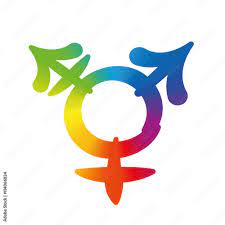Estrogen is a crucial hormone that plays a significant role in a woman’s health, influencing everything from reproductive functions to mood regulation. When estrogen levels drop, it can lead to a variety of symptoms and health issues that can affect daily life. Understanding what low estrogen means, how it manifests, and what you can do about it is essential for maintaining overall well-being. In this article, we’ll explore everything from the signs of low estrogen to practical remedies and tips for living well.
What is Estrogen and Why Does It Matter?
Estrogen is a group of hormones primarily produced in the ovaries, although small amounts are also made in the adrenal glands and fat cells. It is vital for the development of female sexual characteristics, regulating the menstrual cycle, and maintaining reproductive health. Beyond reproduction, estrogen also plays a role in bone health, skin elasticity, and cardiovascular function. Essentially, it’s a key player in keeping the body balanced and functioning optimally.Difference Between Gay And TransgenderForced Feminization Clips
When estrogen levels are appropriate, women generally experience a sense of well-being. However, fluctuations or deficiencies can have far-reaching implications for physical and emotional health. This is why maintaining healthy estrogen levels is not just important, but essential for overall quality of life.
Recognizing the Signs of Low Estrogen Levels
Low estrogen levels can manifest in numerous ways, often leading to symptoms that may be mistaken for other health issues. Common signs include irregular or missed periods, hot flashes, night sweats, and vaginal dryness. Women may also experience changes in libido, fatigue, and sleep disturbances. Recognizing these signs early can help you address potential estrogen deficiencies before they become more serious.
Aside from these physical symptoms, low estrogen can also impact mental health. Mood swings, anxiety, and depression can occur as hormone levels fluctuate. Since these symptoms can overlap with other conditions, it’s crucial to pay attention to your body and consult with a healthcare professional if you notice significant changes.
Common Causes of Low Estrogen in Women
There are several reasons why a woman might experience low estrogen levels. One of the most common causes is menopause, which typically occurs between the ages of 45 and 55. During this transitional phase, the ovaries produce less estrogen, leading to various symptoms associated with hormonal changes. However, menopause isn’t the only culprit; other factors can contribute to low estrogen levels as well.
Certain medical conditions, such as polycystic ovary syndrome (PCOS), thyroid disorders, and pituitary gland issues, can also affect estrogen production. Lifestyle factors such as extreme weight loss, excessive exercise, and high-stress levels can play a role too. It’s essential to understand that low estrogen can be a symptom of broader health issues, and addressing the underlying causes is critical for effective treatment.
How Low Estrogen Affects Your Body and Mood
The effects of low estrogen can be both physical and emotional. Physically, low levels can lead to decreased bone density, increasing the risk of osteoporosis. This is particularly concerning for postmenopausal women. Additionally, changes in skin elasticity and moisture can lead to issues such as dryness and increased wrinkling. These physical changes can sometimes lead to a lowered self-esteem, adding to the emotional toll.
On the emotional front, low estrogen can disrupt neurotransmitter functions in the brain, potentially leading to mood swings or depressive symptoms. It can also affect cognitive functions like memory and focus. Understanding this connection between estrogen and mood can be empowering, offering a clearer picture of how your body is functioning.
Low Estrogen and Your Menstrual Cycle Explained
Estrogen plays a crucial role in regulating the menstrual cycle. During the first half of the cycle, estrogen levels rise, prompting the thickening of the uterine lining in preparation for potential pregnancy. If pregnancy does not occur, estrogen levels drop, leading to menstruation. Low estrogen can disrupt this cycle, resulting in irregular or missed periods.
Women with low estrogen might experience lighter or heavier menstrual flows as well. This fluctuation can make tracking cycles challenging, ultimately affecting intimacy and family planning. Understanding these changes can provide insights into your reproductive health and help identify when to seek medical advice.
Natural Remedies to Boost Estrogen Levels
If you’re looking to naturally boost your estrogen levels, several lifestyle changes and remedies can help. Incorporating phytoestrogens, which are plant-based compounds that mimic estrogen, into your diet can be beneficial. Foods such as flaxseeds, chickpeas, and soy products are great sources. Additionally, maintaining a balanced diet rich in fruits, vegetables, and whole grains can support overall hormonal balance.
Exercise also plays a vital role in hormone regulation. Regular physical activity can help maintain a healthy weight, which in turn supports estrogen production. Mindfulness practices like yoga or meditation can reduce stress levels, further promoting hormonal balance. Making these lifestyle adjustments not only helps boost estrogen but also contributes to overall health and well-being.
When to Seek Medical Advice for Low Estrogen
If you suspect that you have low estrogen levels, it’s essential to consult a healthcare professional. Symptoms like severe mood swings, prolonged irregular periods, or changes in physical health warrant a deeper investigation. A thorough evaluation can help determine the underlying causes of low estrogen and guide appropriate treatment options.
Don’t hesitate to seek help, especially if symptoms start to interfere with daily life or emotional well-being. Healthcare providers can offer various methods for diagnosis, including blood tests and hormone panels, to pinpoint the specific issues and recommend personalized solutions.
Living with Low Estrogen: Tips for Better Health
Living with low estrogen can be challenging, but there are practical ways to manage symptoms and improve your well-being. Staying informed about your health is essential; educating yourself about low estrogen and its implications empowers you to make better health choices. Consider keeping a journal to track symptoms, which can be helpful when discussing your condition with healthcare providers.
Additionally, surrounding yourself with a support system can make a difference. Whether it’s friends, family, or support groups, sharing your experiences and feelings can provide emotional relief. Prioritizing self-care activities, whether through hobbies, relaxation techniques, or regular check-ups, is also crucial in managing the challenges that come with low estrogen levels.
Understanding low estrogen is vital for every woman, particularly as they navigate various life stages. Recognizing the signs, causes, and impacts can lead to proactive measures and effective treatments. By incorporating natural remedies and seeking medical advice when necessary, women can better manage their hormone health. Remember, you’re not alone on this journey—knowledge and support can make all the difference in living a balanced and healthy life.


